From July 1st to 5th, we held "CUC ETHICAL DAYS 2024," an event aimed at raising awareness of ethical consumption. Many people from the local area participated during the event.
The CUC Ethical Student Club took the lead in planning various events, with the Faculty of Service Innovation 's Community Cafe Project, Relaxation Service Project, the Faculty of Faculty of Humanities and Social Sciences' Koguchi Seminar, and the CUC100 Wine Project.
CUC Ethical Student Club
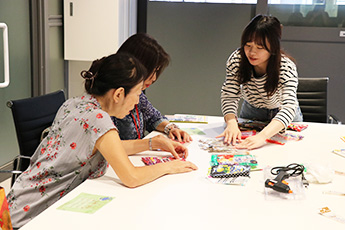
As our university is certified as a fair trade university, we held sales and introductions of fair trade products, a stamp rally around each event, and film screenings to learn about fair trade, ethics, and environmental issues. We also held a workshop to make reusable pouches using candy wrappers left over from pastry.
Community Cafe Project
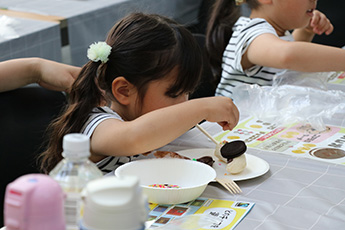
At Cafe Nordic, which was held in an outdoor space, fair trade coffee and locally produced menu items developed in collaboration with local stores were sold. In addition, a cafe work experience program called "Fair Trade Chocolate Banana Making" was held for local children. Thirty people participated over two days. Participants were asked to decide their own selling price, taking into account the type and value of the toppings they chose, and to think about what a "fair price" is.
Relaxation Service Project
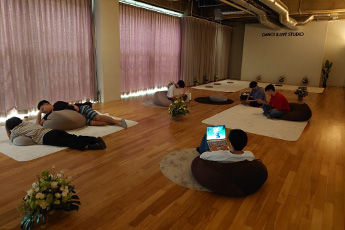
To raise awareness of the "flower waste" problem, where flowers that do not meet the standards are discarded, we planned a "meditation x flowers" relaxation space. We provided fair trade drinks and other items to create a soothing space.
Small seminars at the Faculty of Faculty of Humanities and Social Sciences
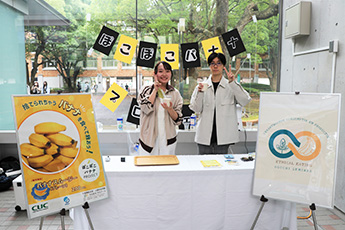
They sold smoothies made from fair trade balangon bananas that were classified as non-standard and were imported to Japan. They explained to customers about the current situation of "food waste" and that the balangon bananas they used were grown in the Philippines without relying on synthetic pesticides or chemical fertilizers, without putting a burden on the natural environment.
CUC100 Wine Project
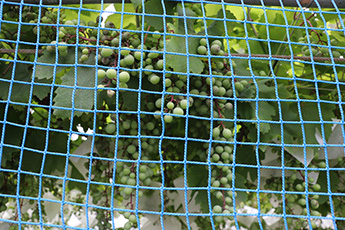
At the vineyard, where solar sharing has been introduced, visitors were given an explanation of "ways to utilize electricity" generated by solar power, and the "food cycle" of growing crops using fertilizer made from food waste from the school cafeteria.
I think it was an opportunity for people to learn about ethical consumption through hands-on experience. Members of the public who participated in the workshop to make pouches from empty candy bags commented, "It was fun to be able to easily remake everyday items." We also held a stamp rally in cooperation with various student groups, and I think we were able to introduce the sustainable efforts being made on campus. We would like to continue to find new ways to hold events that allow many people to learn about the SDGs and ethical consumption.
Mr. Satoshi Sakurai, 3rd year Faculty of Service Innovation (graduated from Kimitsu High School)